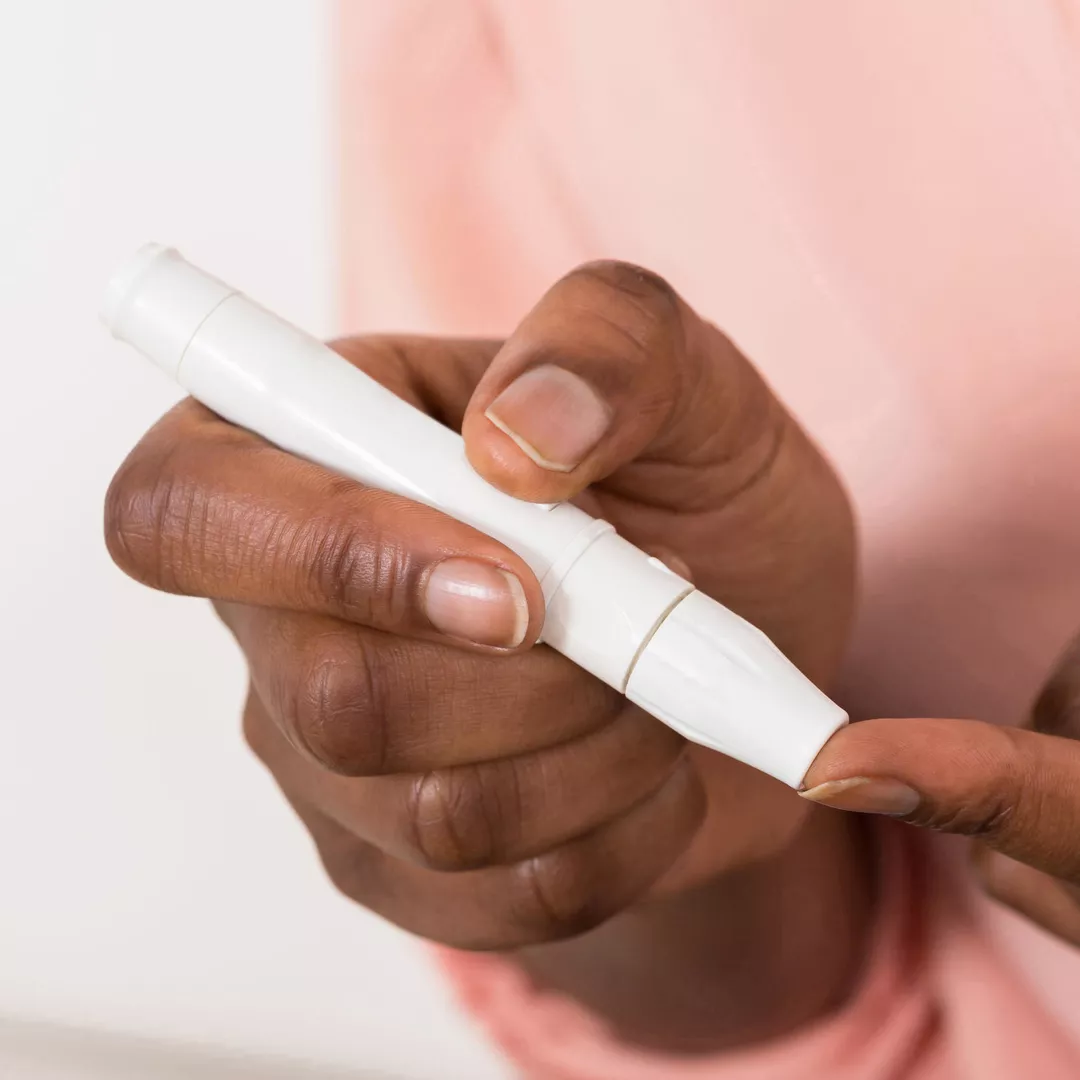Diabetes is a serious condition in which the body cannot maintain healthy blood glucose levels. Insulin, the hormone which regulates these levels, is no longer produced or is not produced in sufficient amounts by the body. People living with diabetes need to manage it daily, and it can have a significant impact on quality of life and health, including increased risk of cardiovascular disease (CVD) and heart conditions, heart attack, stroke and blindness.
There are three main types of diabetes, plus a stage before diabetes called pre-diabetes.
Gestational diabetes
Gestational diabetes occurs during pregnancy when the body cannot cope with the extra demand for insulin production, resulting in higher than normal blood glucose levels.
After the baby is born, gestational diabetes usually disappears, although some women may continue to have high blood glucose levels. There is also an increased risk of developing type 2 diabetes in the future for both mother and baby.
Gestational diabetes can occur in women with no known risk factors.
Type 1 diabetes
Type 1 diabetes is an auto-immune condition in which the pancreas produces little or no insulin. Those affected need to take insulin every day.
The exact cause of type 1 diabetes is not known, but there is a strong genetic link. There is no known link to modifiable lifestyle factors such as diet and exercise, but maintaining a healthy lifestyle can help to manage the condition.
Type 1 diabetes cannot be prevented, and there is no cure.
Type 2 diabetes
In type 2 diabetes, the body becomes resistant to the normal effects of insulin and/or gradually becomes unable to produce enough insulin. This develops over a long period of time. Until recently, this type of diabetes was seen only in adults, but it is now also occurring in children.
The cause of type 2 diabetes is not known. However, there is a strong genetic link, and it is also linked to modifiable lifestyle risk factors such as excess body weight and physical inactivity.
While many people with type 2 diabetes show no symptoms, symptoms can include:
- Frequent or excess thirst
- Passing more urine
- Feeling tired and lacking energy
- Feeling hungry frequently
- Having cuts that heal slowly
- Itching, skin infections
- Blurred vision
- Unexplained weight changes
- Headaches and feeling dizzy
In the early stages, type 2 diabetes can often be managed with healthy eating and regular physical activity. Taking medication or insulin as soon as required can also result in fewer long-term complications.
Pre-diabetes
In pre-diabetes, blood sugar levels are higher than the normal range, but not enough to be considered diabetes. People with pre-diabetes are at higher risk of developing type 2 diabetes and cardiovascular disease later in life.
In the UK, around 7 million people are estimated to have pre-diabetes.1 People with pre-diabetes have an increased risk of developing both diabetes and CVD, but this risk can be decreased through lifestyle changes such as losing weight, increased physical activity and eating a healthy diet.
The impact
It is estimated that over 4 million people in the UK are living with diagnosed diabetes. Over half a million more people in the UK have diabetes that is yet to be diagnosed. That is 1 in every 16 people in the UK who has diabetes.2
Diabetes is a major risk factor for CVD. People living with type 2 diabetes are over twice as likely to develop CVD, with the number one cause of death for people with type 2 diabetes being CVD.3, 4 One of these cardiovascular conditions is peripheral artery disease (PAD), which places sufferers at risk of limb amputation.
The risk
Type 2 diabetes can occur in anyone of any age or gender, but people are at a higher risk of developing it if they:
- have a family history of diabetes
- are overweight
- have high blood pressure
- are over 55 years of age
- are from an Indian subcontinent or Chinese cultural background.
What is HRI doing?
HRI is tackling the urgent issue of rising rates of diabetes and cardiovascular disease from various research angles.
The Vascular Complications Group aims to understand the pathogenesis of blood vessel disease in diabetes, and using this knowledge, identify new strategies to improve function and reduce the burden of disease.
References
- Diabetes UK; Preventing the Type 2 diabetes epidemic. October 2009
- British Heart Foundation; UK Factsheet
- Haffner SM et al; Mortality from coronary heart disease in subjects with type 2 diabetes and in nondiabetic subjects with and without prior myocardial infarction. N Engl J Med 1998; 339:229-234.
- Australian Institute of Health and Welfare; Deaths among people with diabetes in Australia, 2009–2014.

